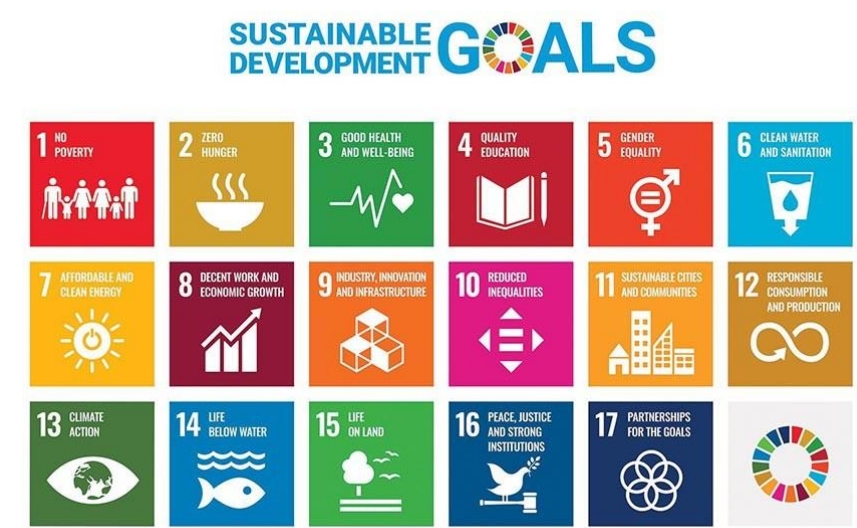
The sustainable development goals (SDGs) are a collection of 17 global goals set by the United Nations General Assembly in 2015 for the year 2030. To achieve some of these goals, Material flow analysis (MFA) helps in many folds. The practice of circular economy can contribute directly to achieving the targets of SDG 6 (Clean Water and Sanitation), SDG 7 (Affordable and Clean Energy), SDG 8 (Decent Work and Economic Growth), SDG 12 (Responsible Consumption and Production), and SDG 15 (Life on Land). In order to sustain economic growth from global material consumption, it is necessary to increase material efficiency strategies by material flow analysis to establish the circular economy concept as the MFA framework is settled up based on the establishment of the circular economy. MFA aims to improve environmental performance, reduce waste, recycle products and improve operational costs.
In Bangladesh, the Clean Water and Sanitation situation system is trying to be improved by increasing the number of toilets. But only toilet-based systems have several limitations to bringing sustainable solutions due to the following reasons. Like as Insufficient treatment of wastes resulting in the pollution of precious water and soil sources; Neglect of natural nutrient cycles where soils are depleted and in need of organic matter and nutrients. To solve these problems, aspects of environmental pollution and sustainable resource use need to be integrated. And Material flow analysis can help to develop in identify pollution, its appropriate solution, and alternative sanitation system. Here the main problem in establishing the MFA model is the country’s insufficient data because Our data server is so much poor.
The energy need in Bangladesh is mainly fulfilled by non-renewable sources i.e., coal, natural gas, oil, petroleum, etc. which have a very undesirable influence on the environment. Fossil fuel is being used as an energy source since a long time for economic growth but limited resources will hinder the sustainable development of the country. In this case, MFA model can show the trend of the increasing rate of fossil fuel due to domestic and industrial requirements and the relationship between resource depletion and human development. MFA shows the reason and logic why to control the fossil fuels consumption and promote energy recycling and new energy facilities in order to lead sustainable access to non-renewable resources and decrease the soaring carbon emissions.
For the economic growth of a nation to achieve sustainable development goals, resource efficiency is very much needed. To achieve resource efficiency, the wise use of resources is necessary through recycling and reusing. In this case, MFA can help to identify the necessary substances and materials which are necessary for a country’s economic growth. Bangladesh lacks resource efficiency by generating too much waste at the landfill site. For stable economic growth, applying the theme of circular economy is a must with the help of MFA.
The industries of Bangladesh mainly practice the linear economy system where they extract or import raw materials and through the waste to the landfill site ignoring recycling. The per capita consumption of materials is high due to these practices. Material flow analysis can help in monitoring the material basis and material productivity of industries, the rate of material flows in an industry, the management of selected resources and materials, and the environmental impacts of material resource use by the industry.
Bangladesh practices a linear economy system where the consumption of raw materials has happened with the generation of a large amount of waste. There is no formal sector for recycling waste, while recycling is only done by formal sectors. But the formal sector needs to identify the trends of material flow, hidden flow, stock, and outflow for sustainable consumption and production. Sustainable consumption is necessary for safeguarding the existing material on the earth.
Finally say, only through the unity of the approaches and the development of research results, can MFA provide
the most expressive guidance to play its full role, and then can sustainable growth of the environment and
economic systems come true.
Mohammad Fahim Uddin
Assistant Consultant (ESD
Share this page via

